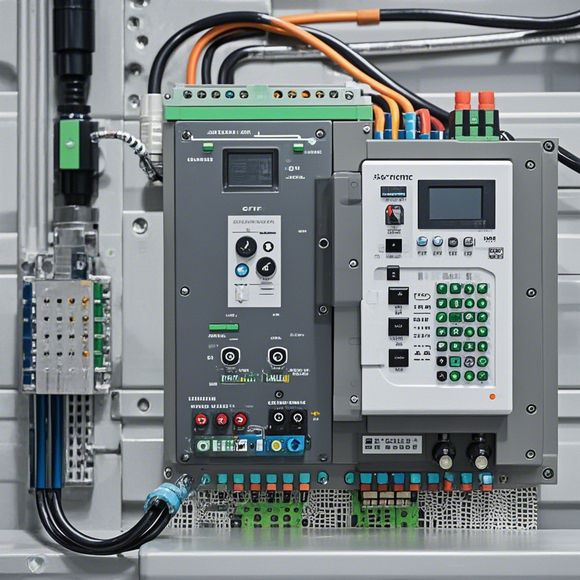What is a PLC (Programmable Logic Controller)?
A PLC, or Programmable Logic Controller, is a device that can be programmed to perform specific tasks. It's used in various industries like manufacturing, automation, and industrial control systems. It's designed to work with other devices and software to automate processes and control equipment, making it an essential tool for modern industry.
Introducing the world of programmable logic controllers, also known as PLCs. These are sophisticated devices that have become an integral part of industrial automation systems worldwide. They serve as intelligent controllers that manage and monitor processes in real-time, ensuring smooth and efficient operations.

The first question that comes to mind when discussing PLCs is "What exactly are they?" At its core, a PLC is a computer system designed specifically for industrial control applications. It's not just any old computer; instead, it's engineered with advanced features to handle high volumes of data and complex calculations, making it ideal for managing critical industrial processes.
Now, let's dive into the specifics of what makes PLCs so powerful and valuable. Firstly, these controllers can be customized according to the specific needs of each industrial application, allowing businesses to tailor their solutions to fit their unique workflows. This means they can handle tasks such as temperature control, motion control, or process monitoring, among others.
Another crucial aspect of PLCs is their reliability. Unlike some other types of computers, PLCs are built to withstand the harsh conditions of industrial environments, including extreme temperatures and dust. This makes them ideal for use in places like manufacturing plants or power generation plants, where there's no room for error.
But what truly sets PLCs apart from other automation technologies is their flexibility. Thanks to their modular design, businesses can easily add new features or upgrade existing ones without having to replace the entire system. This makes it easier to keep pace with changing industry standards and stay ahead of the competition.
When it comes to cost-effectiveness, PLCs are also a great investment. They offer significant savings compared to traditional analog or digital controls due to their lower upfront costs and maintenance requirements. Plus, since they're designed to work efficiently within their given environment, they often require less frequent replacement, further reducing maintenance costs.
Now, onto the benefits of PLCs in terms of performance. With cutting-edge algorithms at their disposal, PLCs can analyze vast amounts of data in real time and quickly make decisions based on that information. This means businesses can respond more effectively to changes in their production lines, reducing downtime and increasing productivity.

Of course, one of the most significant advantages of PLCs is their ability to communicate with other systems within an industrial setup. With the help of modern communication protocols, PLCs can easily integrate with sensors, actuators, software programs, and other devices, enabling businesses to create complex, seamless workflows that optimize efficiency and safety.
Finally, we can't forget about the environmental benefits of using PLCs. By reducing energy consumption through more efficient operation, businesses can significantly cut their carbon footprint and contribute to global efforts towards sustainability.
In short, a PLC is more than just a simple device; it's a powerful tool that has revolutionized the way we think about industrial automation. Whether you're working in manufacturing, healthcare, or any other sector, a PLC can help you streamline your processes, increase efficiency, and ultimately drive success. So if you're looking for an intelligent solution to meet the needs of your business, look no further than your very own PLC!
Content expansion reading:
Articles related to the knowledge points of this article:
Smart Manufacturing Solutions with PLC Integrated Machinery
PLC Controller for Manufacturing Automation
The Role of Programmable Logic Controllers (PLCs) in Foreign Trade Operations
PLC Controllers: A Comprehensive Guide to Understanding Their Prices